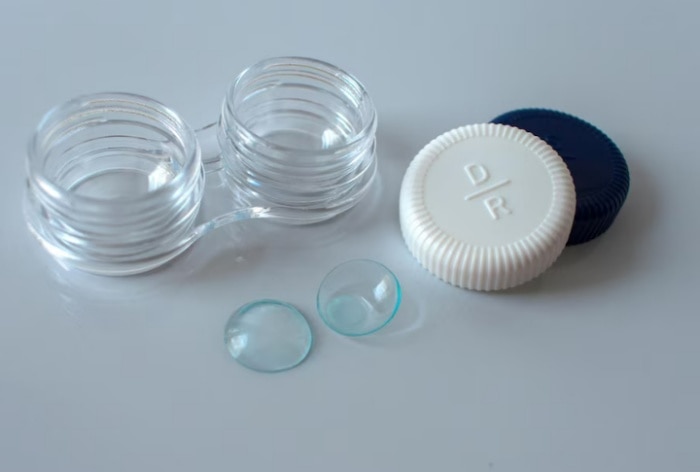You should never sleep with contact lenses on, as they can affect your eye health. Below are some tips on what to do and what not to do when wearing them.
Contact lenses offer the convenience of not having to wear glasses every time you wear them. For some people, it can also be a good idea to boost their confidence a bit. However, there is a rule that must be followed when it comes to contact lenses. The eyes help us see the world. They are very sensitive and utmost precautions must be taken when wearing and removing contact lenses. Recently, Indian television actress Jasmine Bhasin suffered damage to her cornea after wearing contact lenses. The case shed more light on the importance of contact lens hygiene.
One of the most important things to remember is to never sleep with contact lenses in.
What happens when you sleep with contact lenses?
Sleeping with contact lenses can be very dangerous for your eyes. When your eye remains closed, the lens and eyes do not receive enough oxygen. This can lead to infections or other eye health complications.
This lack of oxygen can lead to a condition called corneal edema, in which the cornea becomes swollen and inflamed. Over time, this can damage the corneal tissue and affect vision. Additionally, sleeping in contact lenses allows bacteria and other microorganisms to multiply on the surface of the lens, which can lead to infectious keratitis, an eye infection that can be vision-threatening.
5 Do’s and Don’ts of Wearing Contact Lenses
Of the:
- Remove your contact lenses before going to sleep: Get into the habit of always removing your contact lenses before bed, even if you plan to take a short nap. Giving your eyes a break from contact lenses is essential to maintaining eye health.
- Clean and store your lenses properly: Carefully follow the cleaning and disinfection instructions provided by your eye care professional or lens manufacturer. Proper lens care reduces the risk of bacterial growth and eye infections.
- Maintaining lens hygiene: Always wash your hands before using contact lenses. Make sure to keep your contact lenses in a hygienic condition. Wash and moisturize them regularly.
- Attend regular eye exams: Visit your optometrist or ophthalmologist for routine checkups and adjustments to ensure your contact lenses are still suitable for your eyes.
- Listen to your eyes: If you experience any discomfort, redness, or vision changes while wearing contact lenses, remove them immediately and consult your eye care provider.
Not to do:
- Don’t sleep with your contact lenses: As mentioned, sleeping in contact lenses can lead to serious eye health problems, so it’s critical to never do this, even if the lenses have a label that says “extended wear.”
- Do not use expired or damaged lenses: Check the expiration date on your contact lens packaging and discard any lenses that have exceeded their recommended use.
- Do not swim or shower: Water can harbor harmful microorganisms that can cause eye infections when you come into contact with them through contact lenses.
- Do not share your contacts with others: Contact lenses are a personal item and should never be shared, as this increases the risk of spreading infections.
- Don’t neglect the hygiene of your contact lens case: Clean and replace your contact lens case regularly according to the manufacturer’s instructions to prevent bacteria growth.
By following these tips, you can enjoy the comfort of contact lenses while putting the health and safety of your eyes first. Remember, taking the time to properly care for your lenses is a small investment that can pay off in years of comfortable, clear vision.
